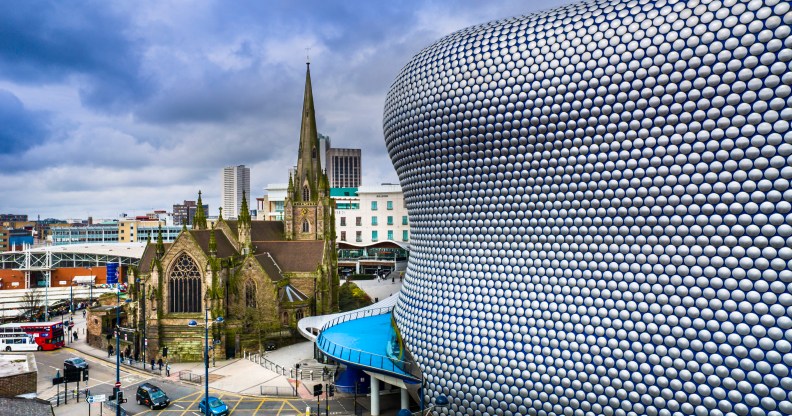LGBT people ‘don’t feel safe in Birmingham, especially since Brexit’, police say

Police have said that LGBT+ people don’t feel safe in parts of Birmingham. (Getty)
Police in Birmingham have warned that some LGBT+ people don’t feel safe in parts of the city.
As Birmingham’s Gay Village faces the threat of a proposed residential development, the West Midlands Police hate crime coordinator has warned that the city is already falling short on safe spaces for LGBT+ people.
“While Birmingham is a liberal city, attitudes to LGBT people are still mixed,” the coordinator said in a report to Birmingham City Council’s planning committee.
“There are many areas of Birmingham, including within the city centre, where same-sex couples do not feel safe.”
Homophobic hate crime doubles in six months in West Midlands.
Police pointed to an increase in anti-LGBT+ attacks in the past few years.
“Hate crime against LGBT+ people has increased year on year, especially since the result of the Brexit referendum and increase in right wing activity.”
According to Birmingham Mail, 453 homophobic hate incidents were reported to West Midlands Police between February and July of this year – almost double the figure for the previous six months.
Home Office figures show that across England and Wales, reported hate crimes motivated by a person’s sexuality have doubled from 5,591 in 2014/15 to 11,638 in 2017/18. Reports of transphobic crimes soared from 607 to 1,651 in the same period.
The Home Office said in its most recent hate crime report that the rise can be partly attributed to improved reporting, but caveated: “There has been spikes in hate crime following certain events such as the EU referendum.”
Birmingham Gay Village faces development threat.
West Midlands Police made their report ahead of a planning meeting on August 29, during which a committee will discuss plans to build three blocks of flats in the heart of Birmingham’s Gay Village.
Councillors, nightclub owners and campaigners fear that residents moving into the proposed complex could lodge noise complaints against the nearby venues, which Birmingham City Council’s regulatory services said would “almost certainly” result in action being taken.
Councillor Gareth Moore said that the development “would not only remove a safe space for Birmingham’s LGBT+ community to enjoy a night out, but would also have a wider impact”.
“The LGBT+ night time economy not only serves Birmingham, but the wider West Midlands and even nationwide, with LGBT people coming from across the country to Birmingham,” Moore added.

